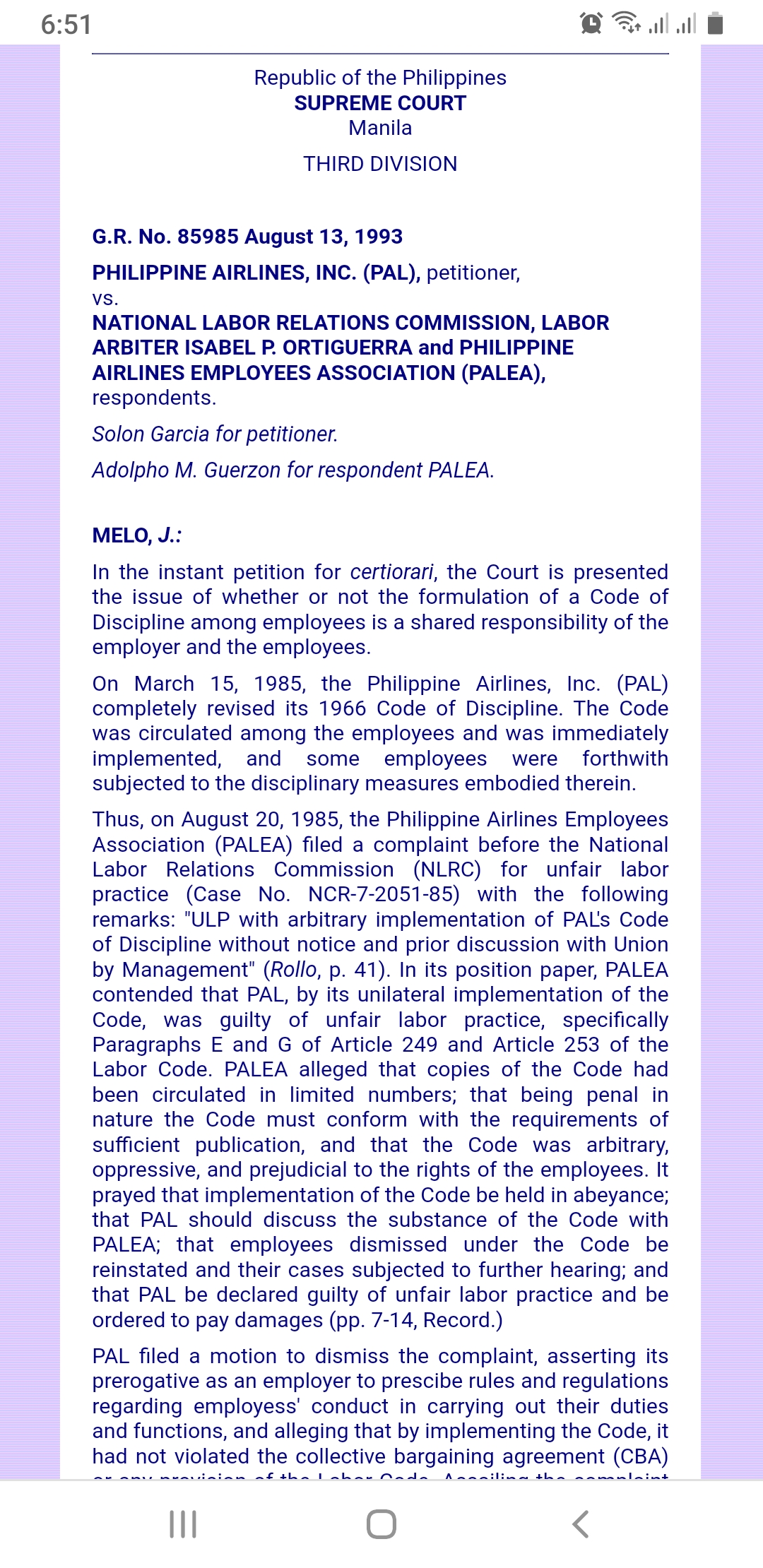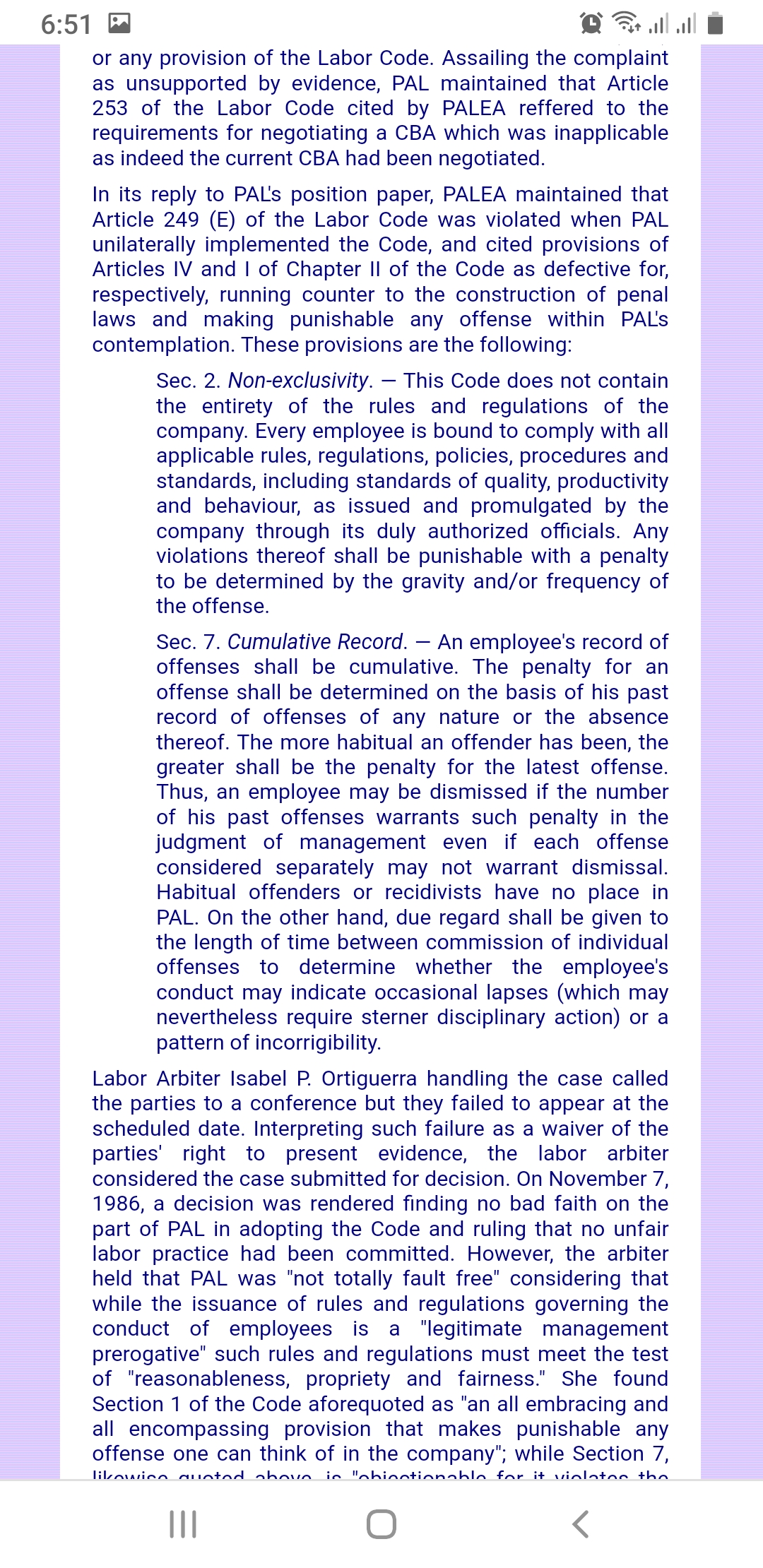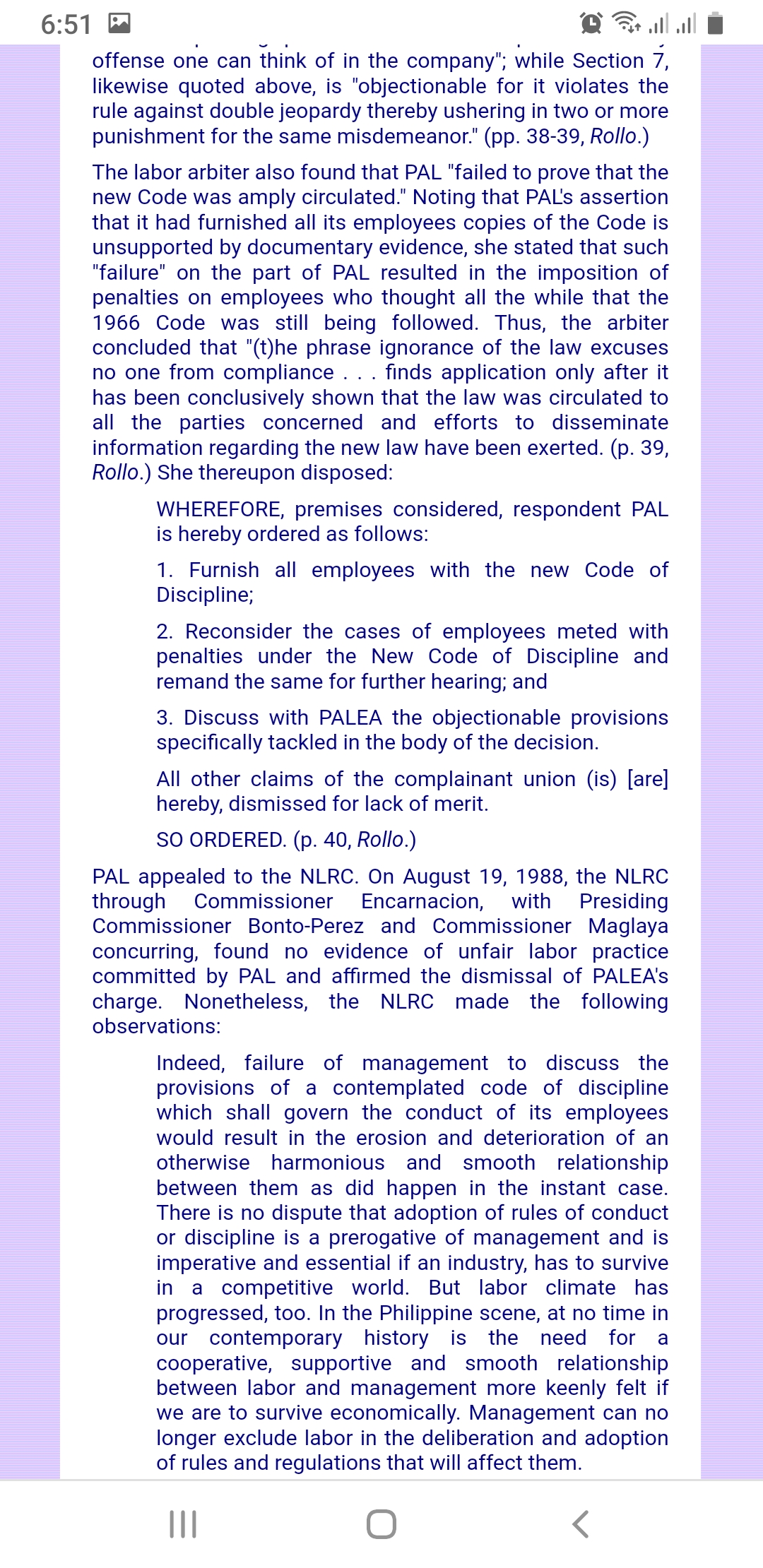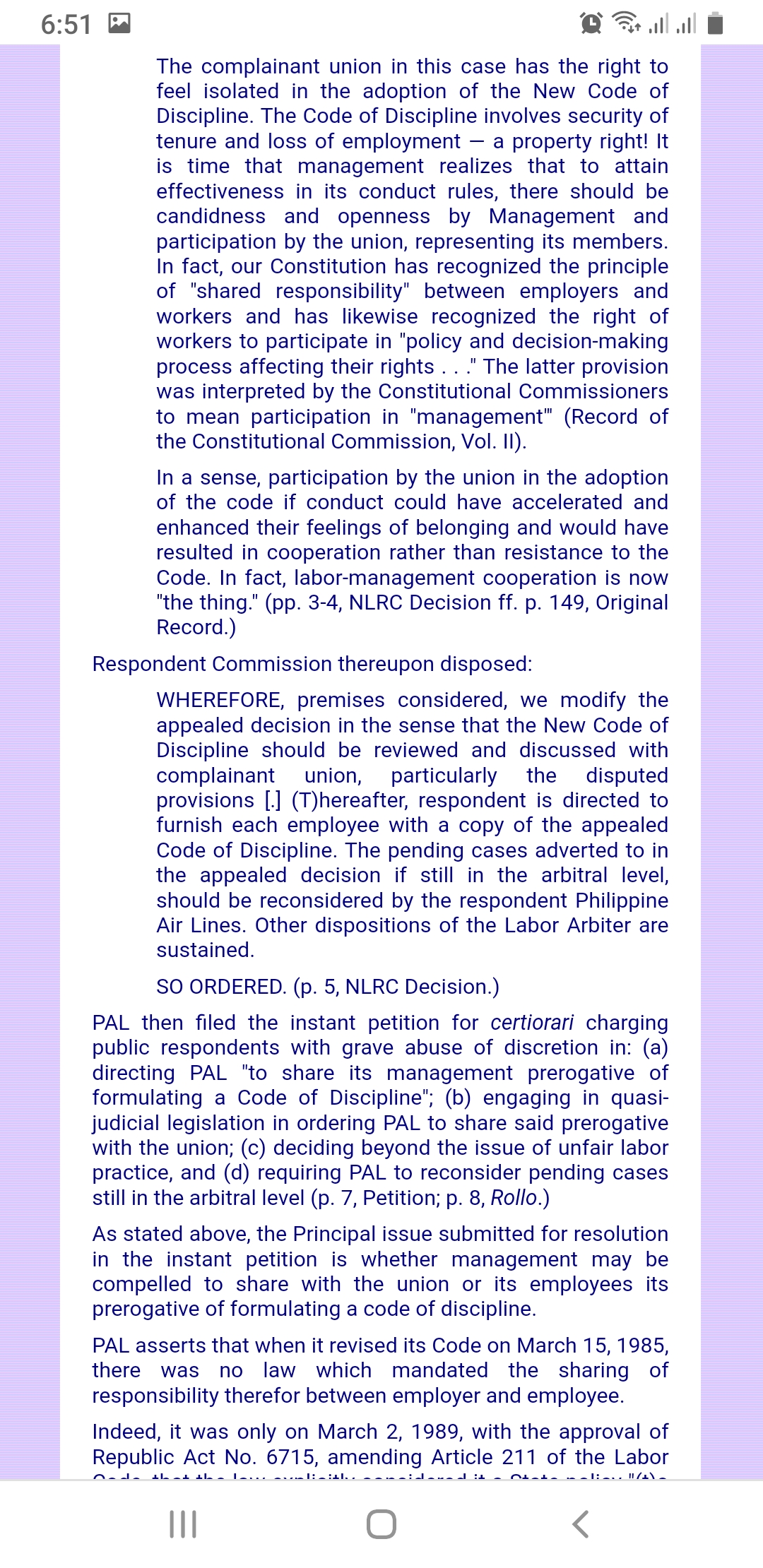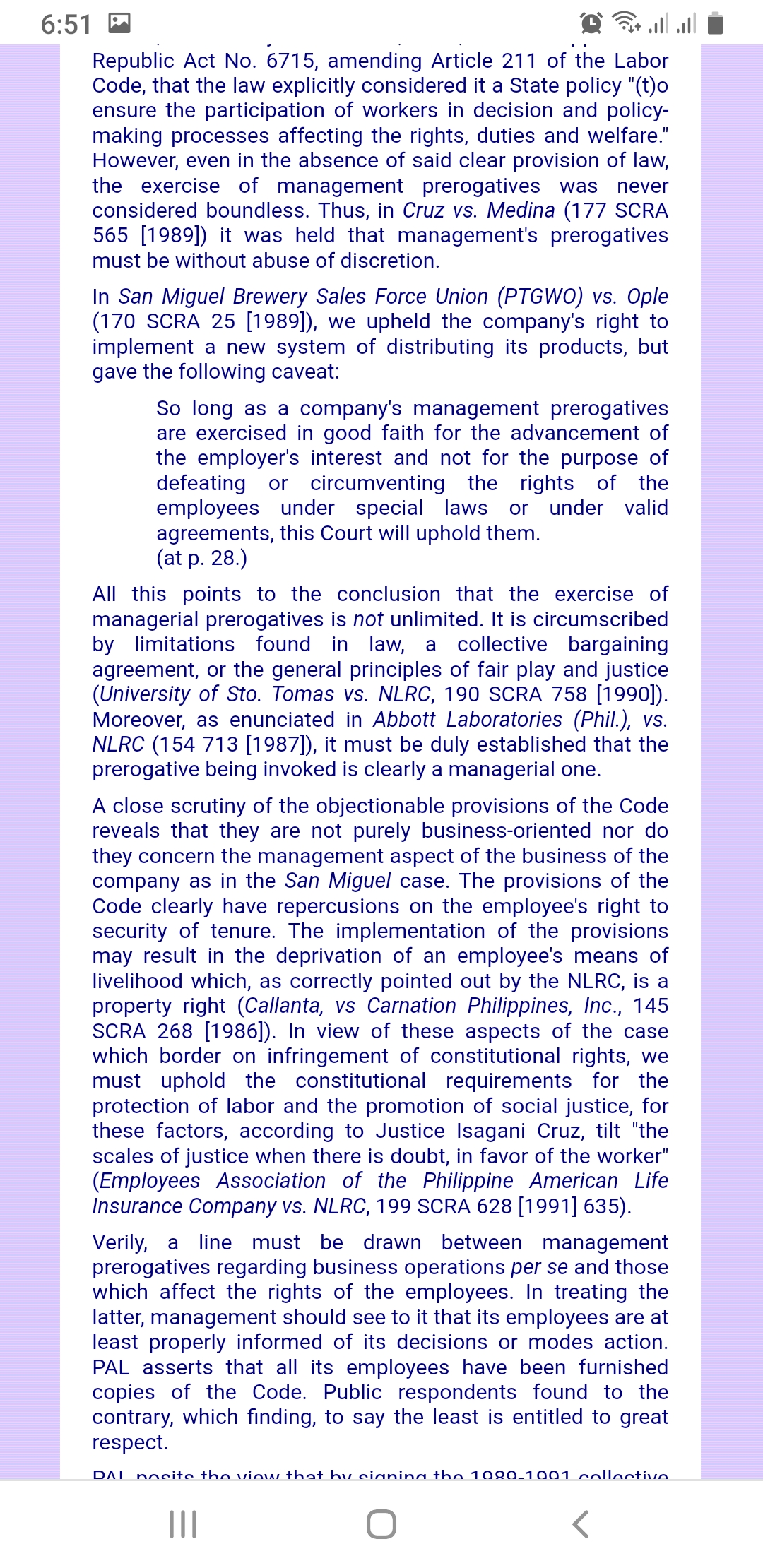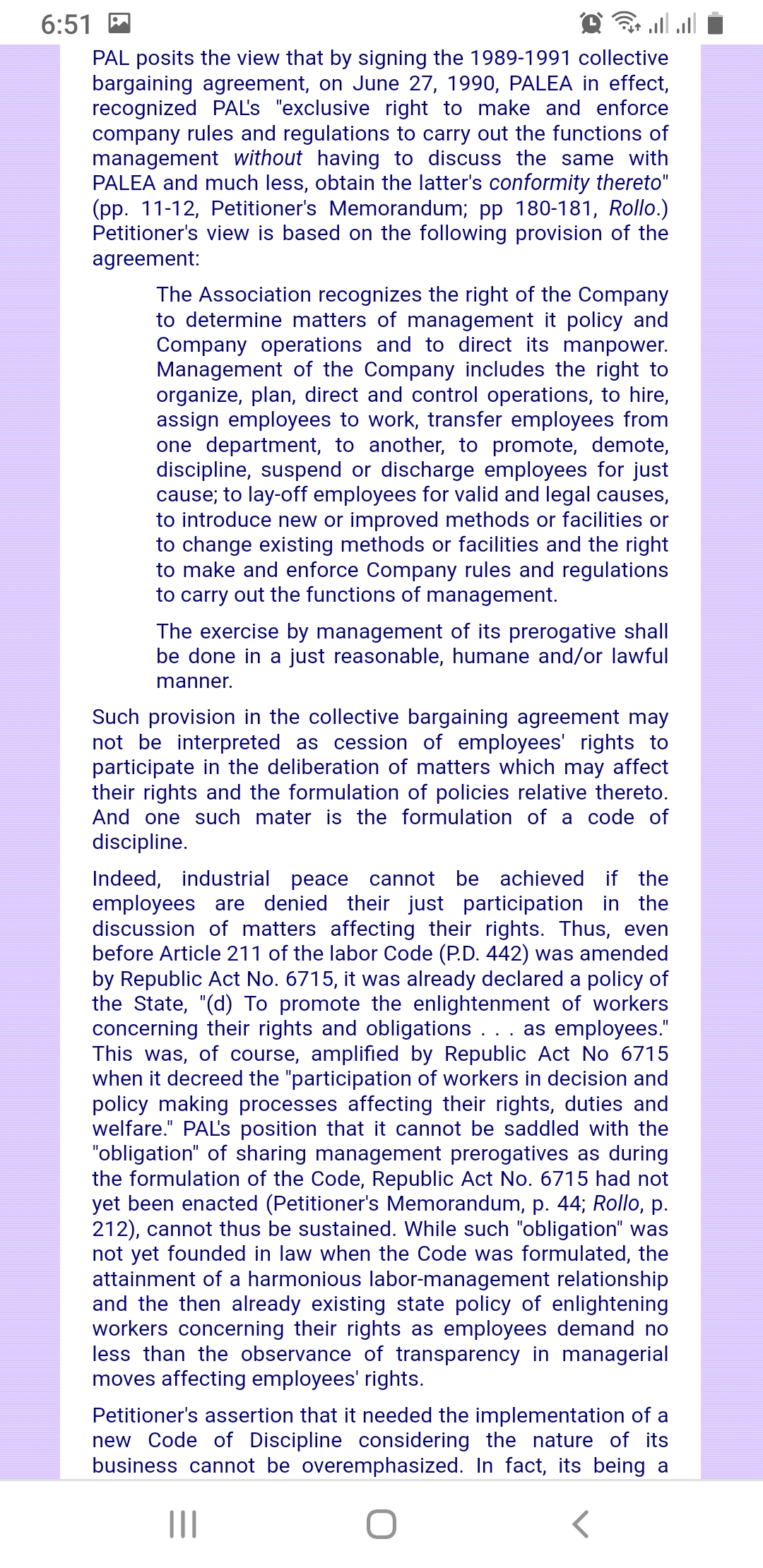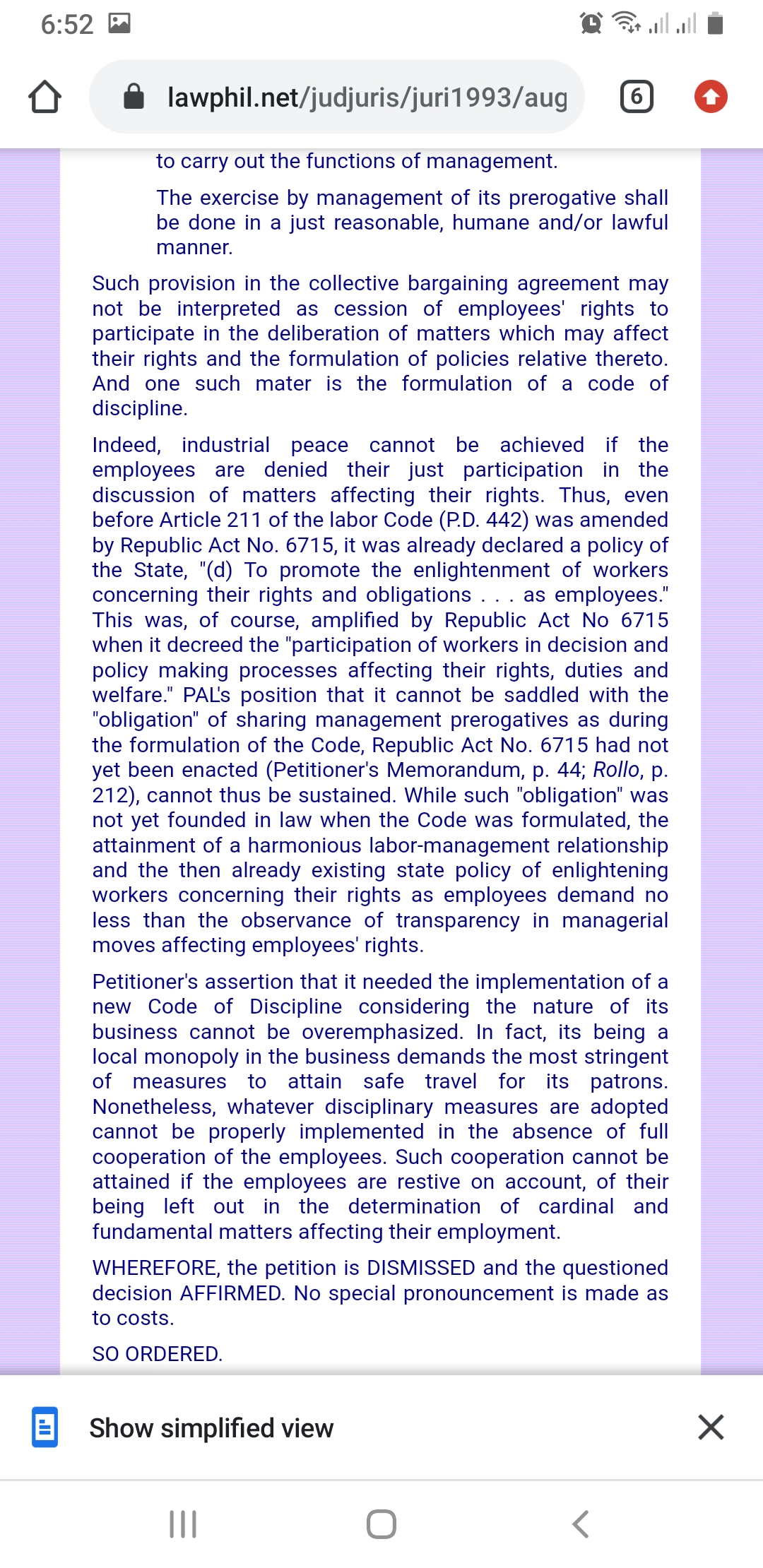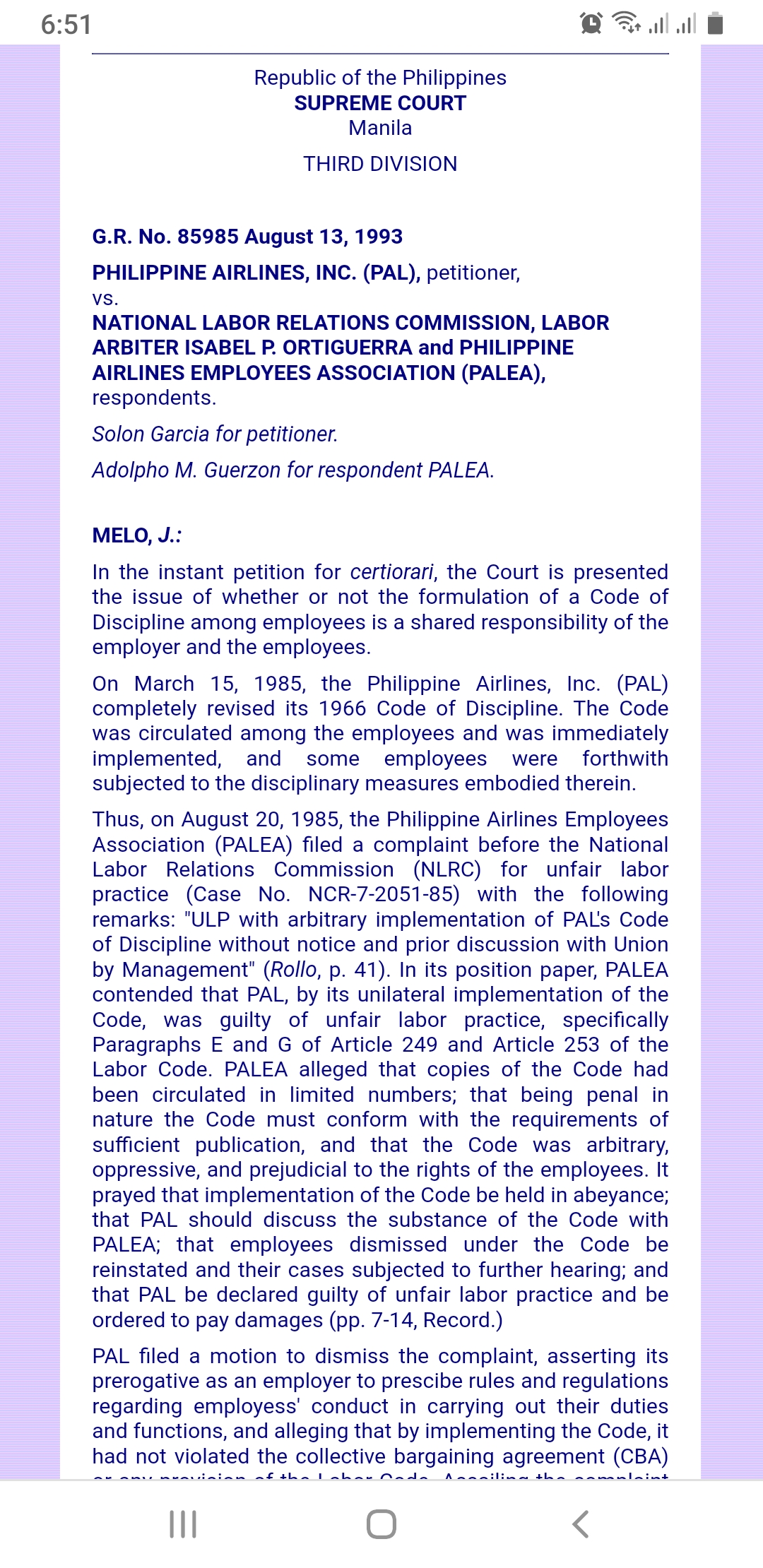
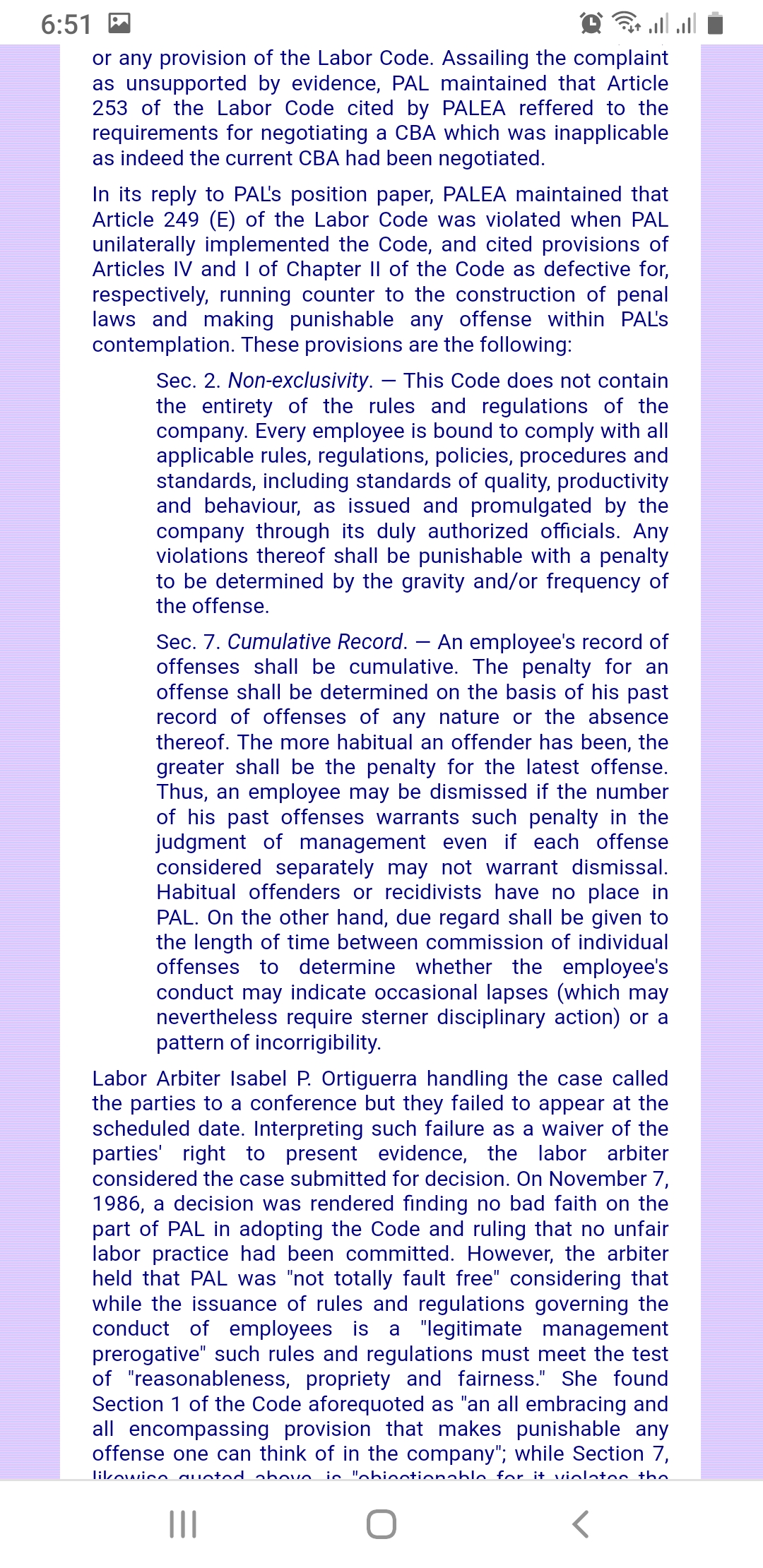
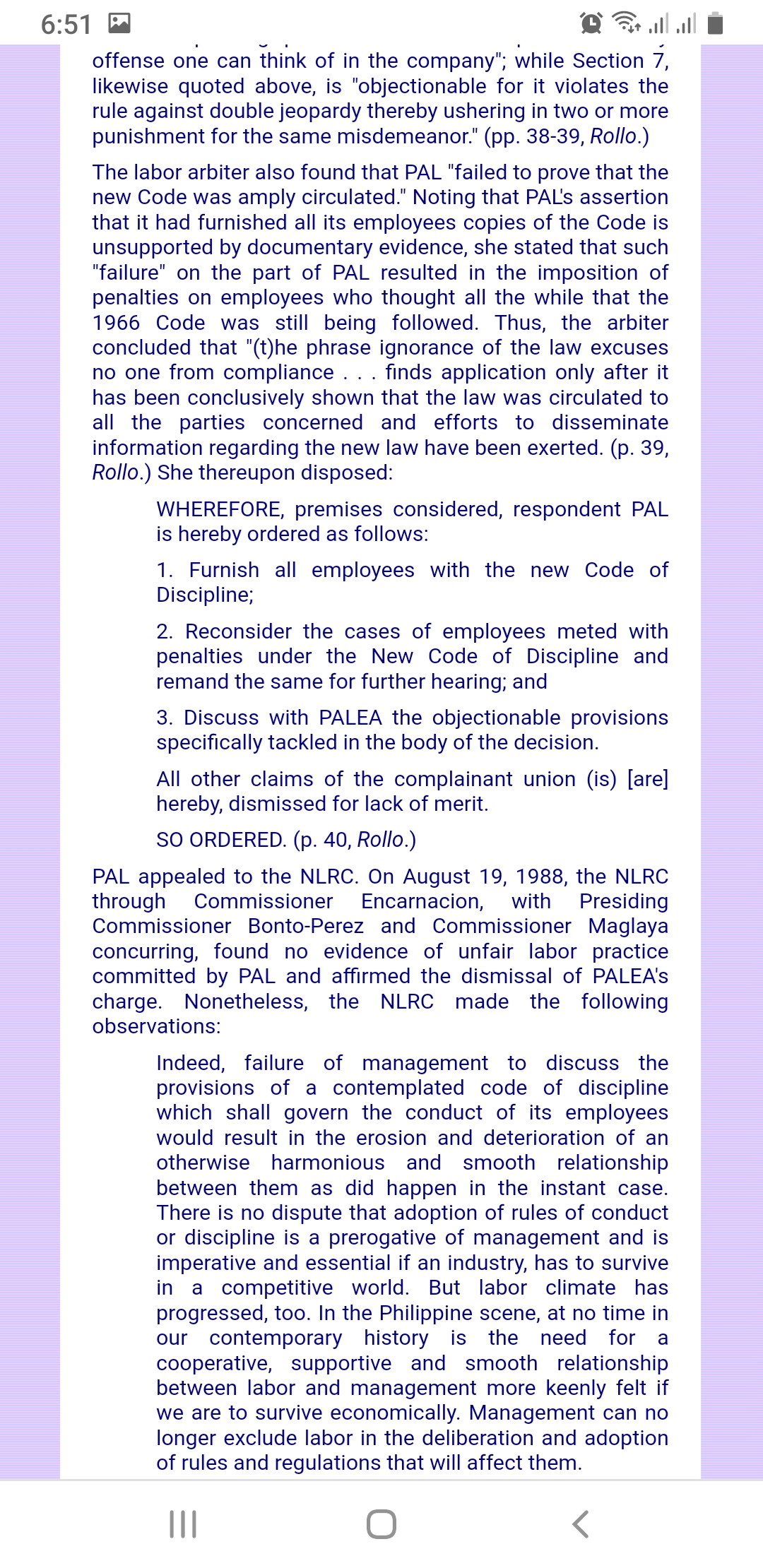
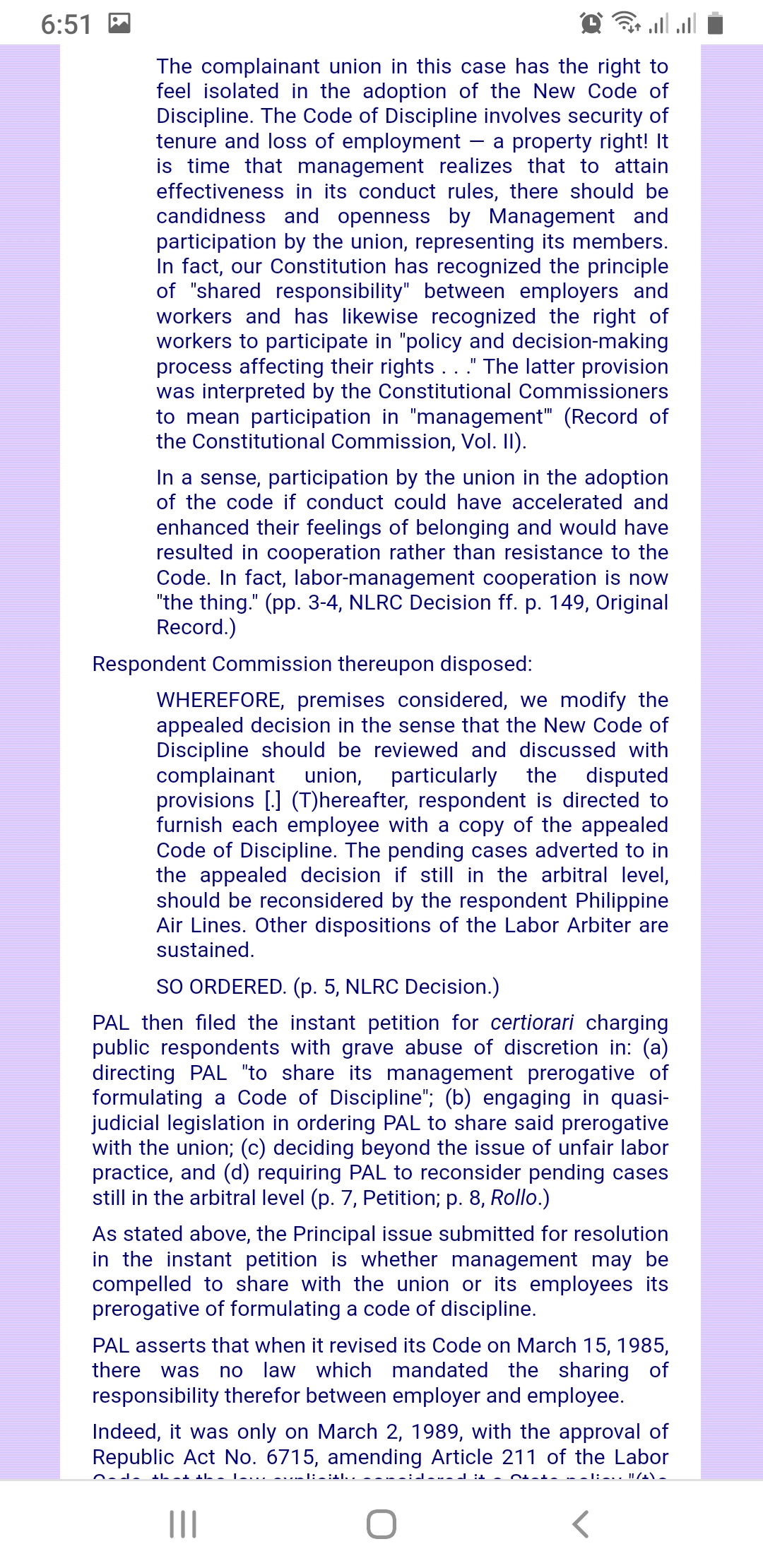
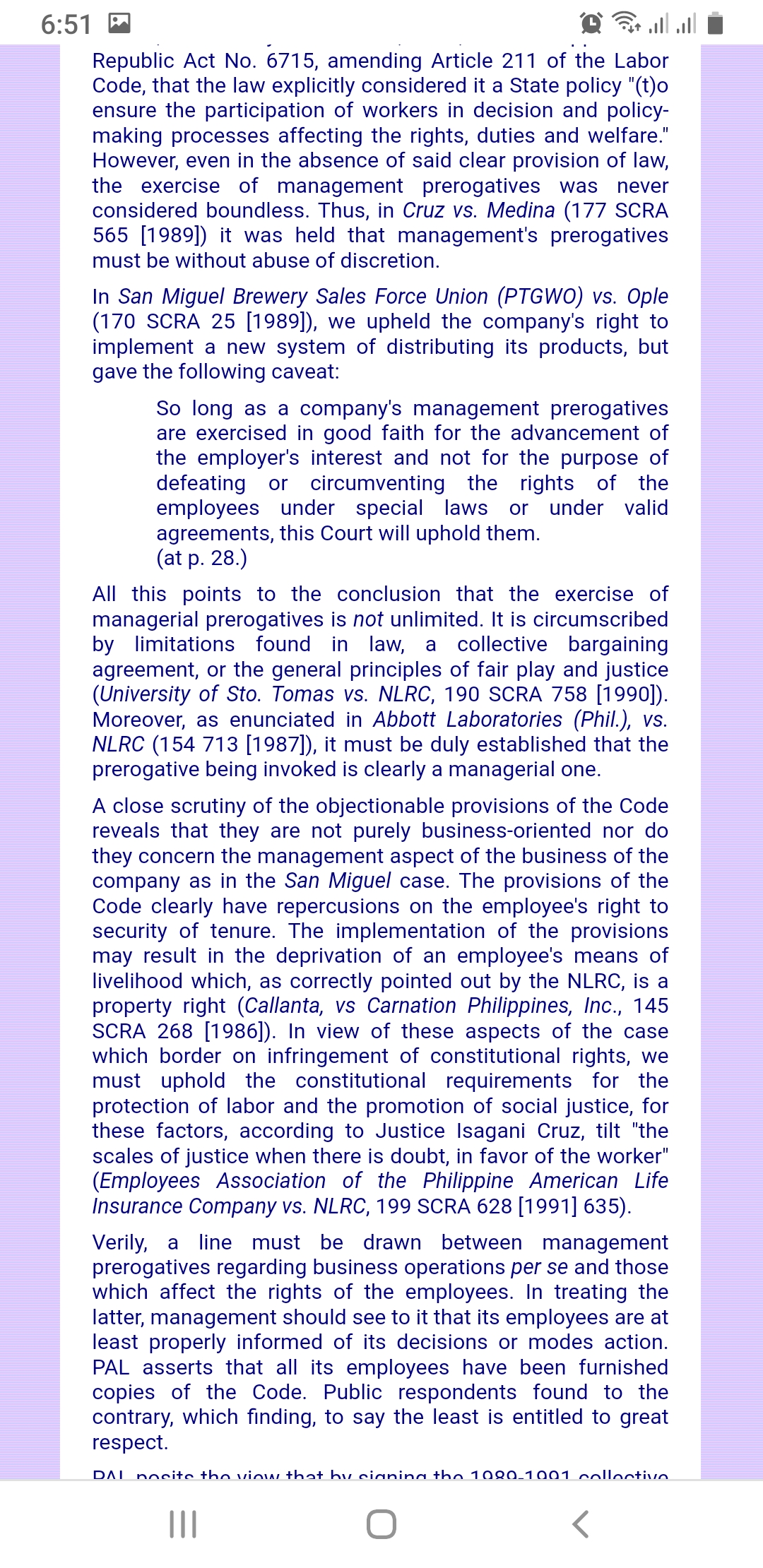
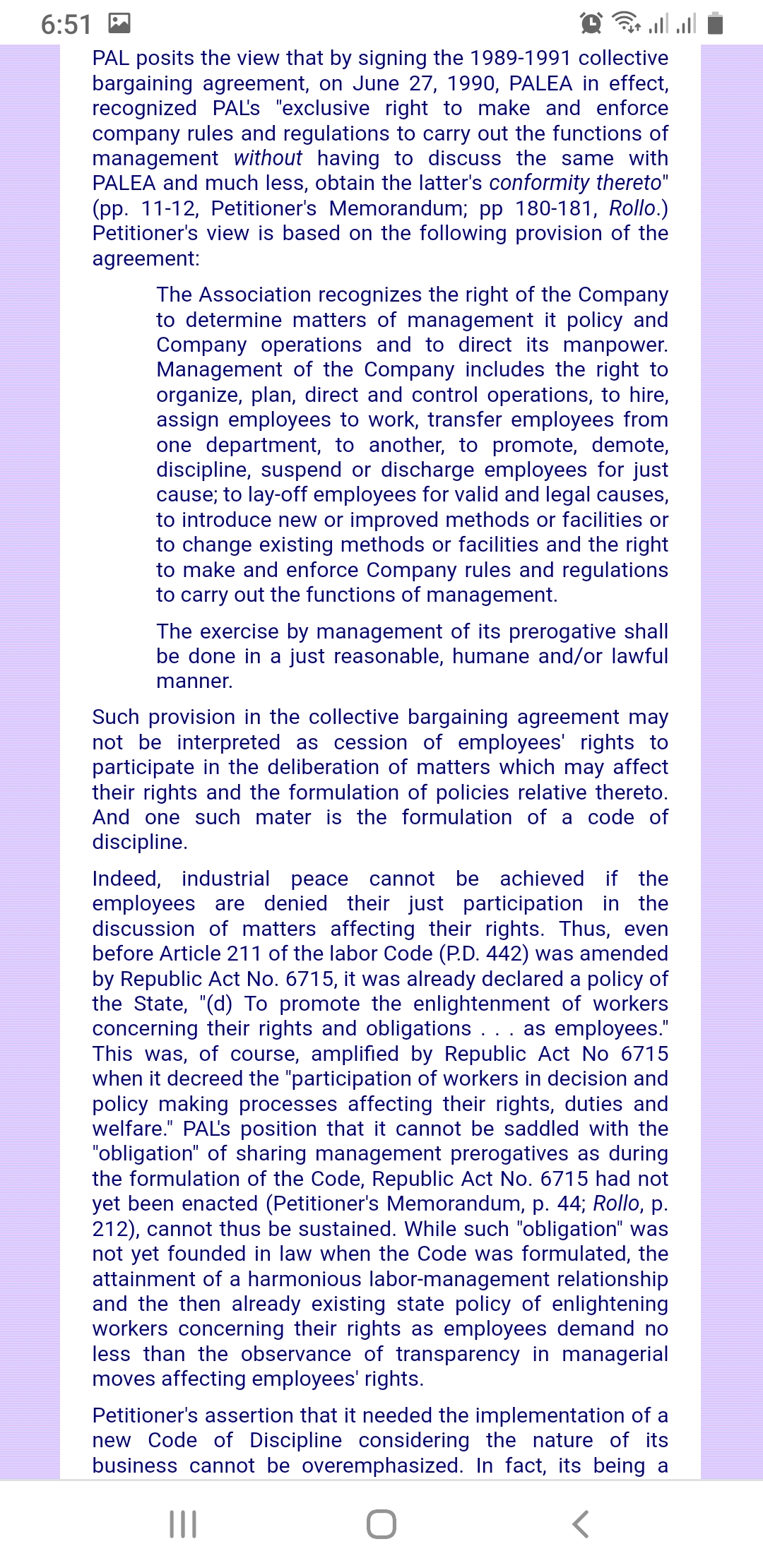
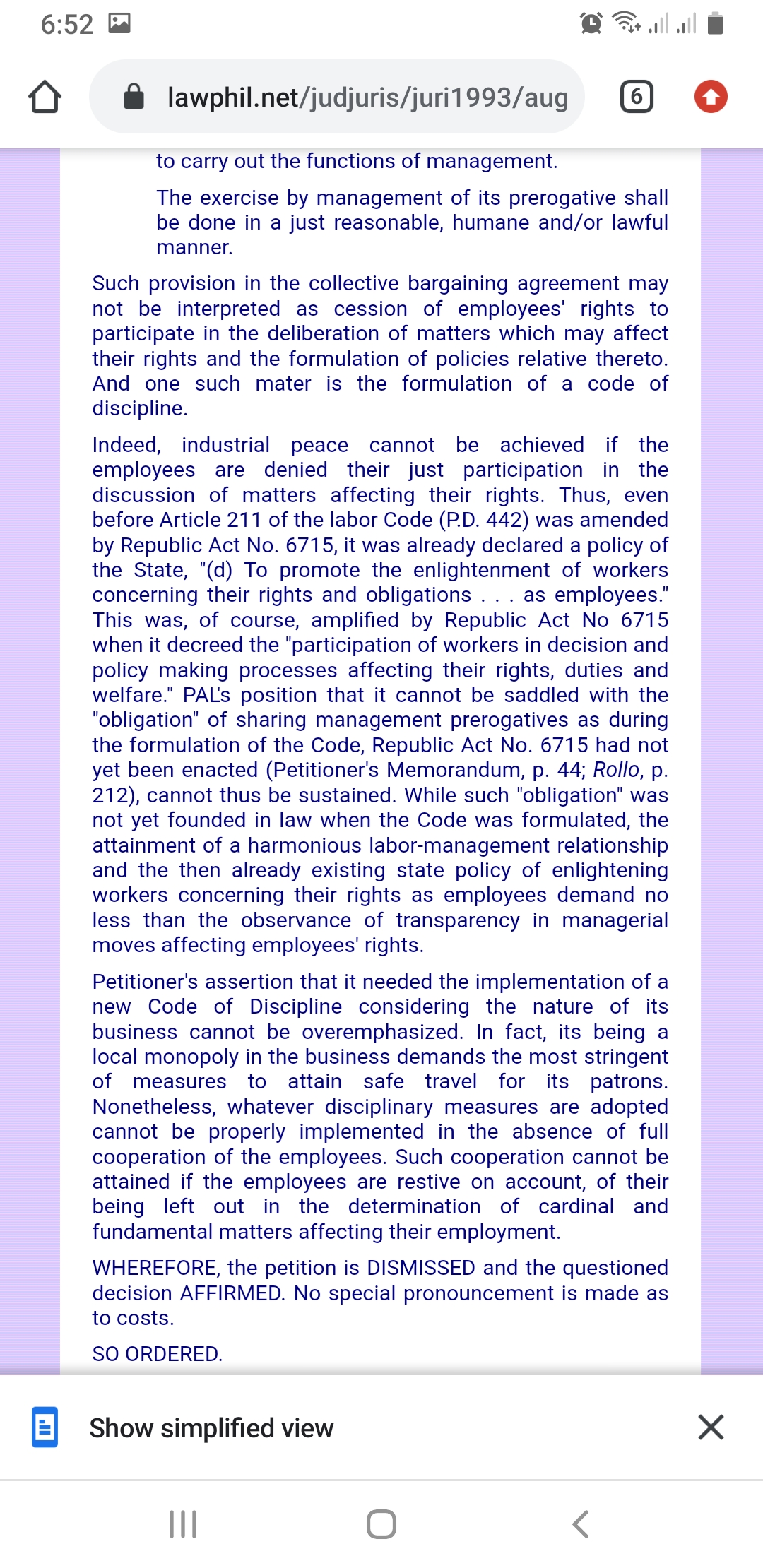
This is Labor Law & Legislation subject. Please help me answer the following questions:
1.What is the difference between: Picketing & Strike?
2.What is the difference between: Principle of Co-determination & Principle of Shared Responsibility?
3.Supreme Court Case: PAL vs. NLRC (G.R. No. 85985 August 13, 1993)
Question: What principle is applicable to the formulation of a Code of Discipline among employees?
4. What is the concept of due process and its applicabiity to Labor cases?
Note: please include citation of the references used and also please answer clearly for me to understand
Attached is the Supreme Court Case in #3: or visit this site: https://lawphil.net/judjuris/juri1993/aug1993/gr_85985_1993.html
6251 'Q "~55 .Ill .IIE i Republic of the Philippines SUPREME COURT Manila THIRD DIVISION GR. No. 85985 August 13, 1993 PHILIPPINE AIRLINES, INC. (PAL), petitioner, vs. NATIONAL LABOR RELATIONS COMMISSION, LABOR ARBITER ISABEL P. ORTIGUERRA and PHILIPPINE AIRLINES EMPLOYEES ASSOCIATION (PALEA), respondents. Solon Garcia for petitioner. Adolphe M. Guerzon for respondent PALEA. MELO, J..' In the instant petition for certiorarl, the Court is presented the issue of whether or not the formulation of a Code of Discipline among employees is a shared responsibility of the employer and the employees. On March 15, 1985, the Philippine Airlines, Inc. (PAL) completely revised its 1966 Code of Discipline. The Code was circulated among the employees and was immediately implemented, and some employees were forthwith subjected to the disciplinary measures embodied therein. Thus, on August 20, 1985, the Philippine Airlines Employees Association (PALEA) filed a complaint before the National Labor Relations Commission (NLRC) for unfair labor practice (Case No. NCR72051-85) with the following remarks: "ULP with arbitrary implementation of PAL's Code of Discipline without notice and prior discussion with Union by Management" (Rollo, p. 41). In its position paper, PALEA contended that PAL, by its unilateral implementation of the Code, was guilty of unfair labor practice, specifically Paragraphs E and G of Article 249 and Article 253 of the Labor Code. PALEA alleged that copies of the Code had been circulated in limited numbers; that being penal in nature the Code must conform with the requirements of sufcient publication, and that the Code was arbitrary, oppressive, and prejudicial to the rights of the employees. It prayed that implementation of the Code be held in abeyance; that PAL should discuss the substance of the Code with PALEA; that employees dismissed under the Code be reinstated and their cases subjected to further hearing; and that PAL be declared guilty of unfair labor practice and be ordered to pay damages (pp. 7-1 4, Record.) PAL led a motion to dismiss the complaint, asserting its prerogative as an employer to prescibe rules and regulations regarding employess' conduct in carrying out their duties and functions, and alleging that by implementing the Code, it had not violated the collective bargaining agreement (CBA) ................ -I al... I .L... n....l.. A..-...I.._... u... \"Luann\"; III C)







